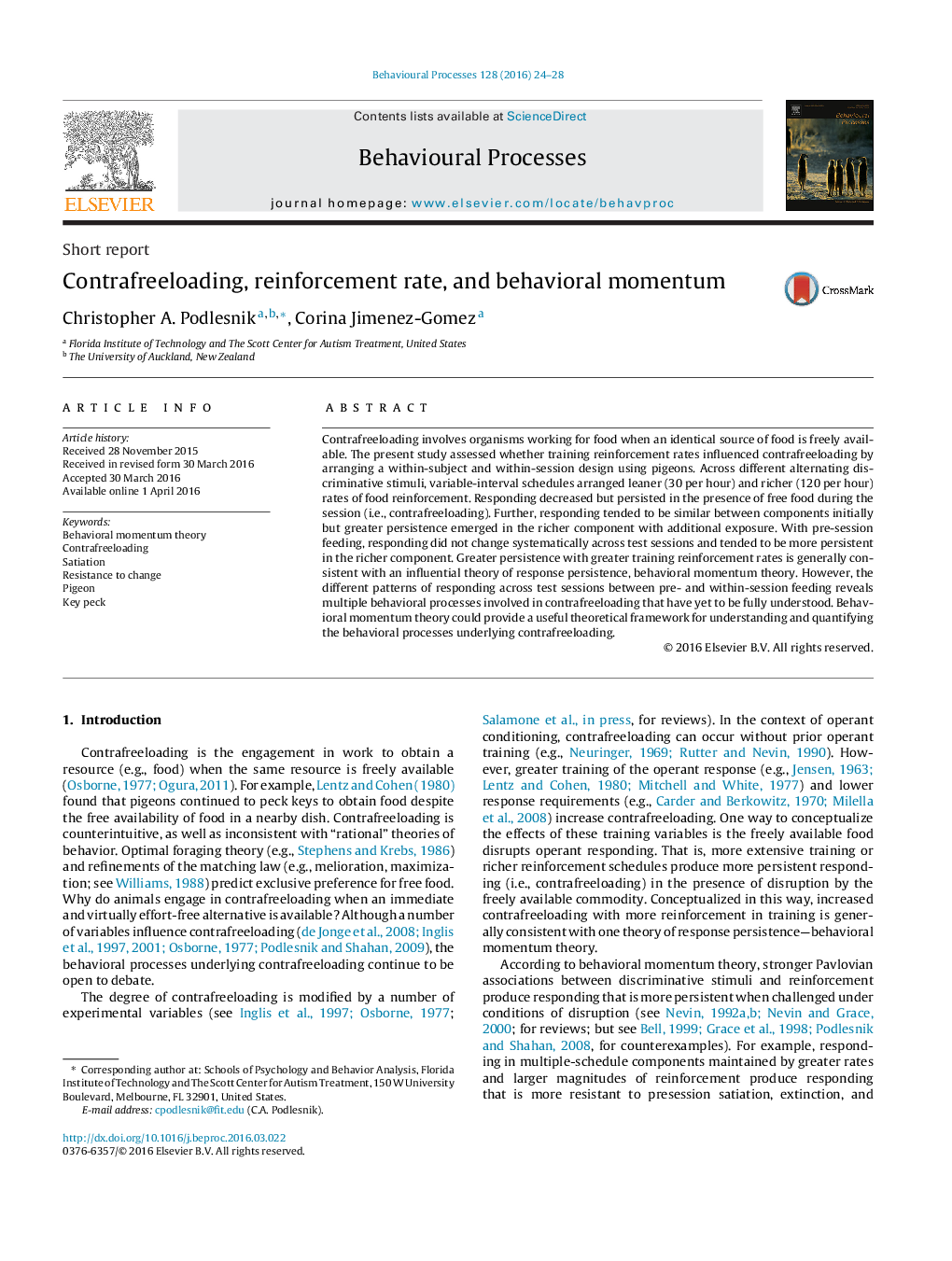| Article ID | Journal | Published Year | Pages | File Type |
|---|---|---|---|---|
| 8497074 | Behavioural Processes | 2016 | 5 Pages |
Abstract
Contrafreeloading involves organisms working for food when an identical source of food is freely available. The present study assessed whether training reinforcement rates influenced contrafreeloading by arranging a within-subject and within-session design using pigeons. Across different alternating discriminative stimuli, variable-interval schedules arranged leaner (30 per hour) and richer (120 per hour) rates of food reinforcement. Responding decreased but persisted in the presence of free food during the session (i.e., contrafreeloading). Further, responding tended to be similar between components initially but greater persistence emerged in the richer component with additional exposure. With pre-session feeding, responding did not change systematically across test sessions and tended to be more persistent in the richer component. Greater persistence with greater training reinforcement rates is generally consistent with an influential theory of response persistence, behavioral momentum theory. However, the different patterns of responding across test sessions between pre- and within-session feeding reveals multiple behavioral processes involved in contrafreeloading that have yet to be fully understood. Behavioral momentum theory could provide a useful theoretical framework for understanding and quantifying the behavioral processes underlying contrafreeloading.
Related Topics
Life Sciences
Agricultural and Biological Sciences
Animal Science and Zoology
Authors
Christopher A. Podlesnik, Corina Jimenez-Gomez,
